

 Welcome to “Up Close & Personal.” For every interview I will be introducing a literary personality discussing her views and insights, as well as upcoming literary events around the world.
Welcome to “Up Close & Personal.” For every interview I will be introducing a literary personality discussing her views and insights, as well as upcoming literary events around the world.Today’s interview is with Susan Henderson. Her debut novel will be published by St. Martin's Press in Spring of '08. She is a Pushcart nominee, and has a grant from the Ludwig Vogelstein Foundation.
Along with Stephen King, Dave Eggers, Kurt Vonnegut and over one hundred fifty writers, Ms. Henderson is a contributor to 'Future Dictionary of America'. A book that was conceived by Jonathan Safran Foer, Nicole Krauss, and the staff of McSweeney's to promote progressive causes in the November 2004 election.
E.I. What were you like as a teenager? Please tell your readers more about Susan Henderson-- the woman behind the author?
Susan Henderson: By the time I was a teenager, I had already been an alcoholic, a fire-starter, a pill popper, a hitchhiker, a bully, a forger, and a
runt. I was bused back to my own neighborhood for high school and separated from my peer group, and suddenly I found a much more stable side of me. My teenage years were pretty peaceful by comparison.
From the outside, I looked like this: I was athletic (crew, shot put, weight-lifting). My hair was long. I was kind of pretty but didn't wear make-up and didn't do anything with my hair except let it air-dry. I grew up in Virginia, just outside of DC, so I had a slight southern accent, which I've since lost. I was in the gifted program for English and all of my sciences, and was the poetry editor of the school magazine. My big passion was dancing and reading. I also took care of a little girl with a brain tumor every day, so that probably shaped me more than anything else.
I think I appeared to fit in well, and in many ways I did. But I always felt a little different. When I hung out with other kids and we got to talking, my conversations always went in a vastly different direction than theirs. I would feel the most alone whenever I was in a group. My closest friend was the janitor. He wrote poetry, and we'd stay after school and read his poems and listen to opera on a little tape recorder.
E.I. Many writers describe themselves as "character" or "plot" writers. Which are you? What do you find to be the hardest part of writing?
Susan Henderson: I write because I love the quirky nuances of people. That's the stuff I care about and what comes easily to me. I'm trying so hard to teach myself how to plot better, and particularly, to plot first and not try to jam a plot under a near-finished piece of writing. A couple years ago, I spent several months reading nothing but bestsellers to try to see what it was that made people buy them, and that was a really useful way to spend my time. It makes me understand what my writing
was missing, and I plan to outline the plot of my next book before I get going with it – though my heart is with the characters, the quiet moments, and the words.
E.I. What is your response to the public perception that writers' creative insight and energy is frequently the product of personal conflict?
Susan Henderson: Hmm, I didn't know that was the public perception. I suppose we may gain our hyper sense of awareness from old wounds. On the other hand, my brother, who had more or less the same childhood I had, is a doctor and doesn't create art at all. And my mother, who is very much a creative type and extraordinarily perceptive and attentive to details, doesn't write – though I think she'd be good at it. Maybe it's a temperament thing? Maybe a combination?
E.I. Do you express your inner self in your writing, or do the persona's you create exist only in your imagination?
Susan Henderson: I'm very much inside of my characters. Sometimes I'll push them to do something more daring than I would in real life, but I have an intimate understanding of their sensibilities.
E.I.What would you tell those authors considering applying to an M.F.A. program? In your opinion how important is it for a writer to have a writing degree?
Susan Henderson: I don't have an MFA in writing – my Master's is in counseling - so I can't say. I'm certain the more contacts you have in the business is a plus, so that alone may make it worth someone's while.
I strongly believe that reading good books is more than half of what makes you a good writer. It trains your ear. It opens your mind to the possibilities of words and adventures. And other than that, like any job, you just work at it. You write and write and write and write, and surround yourself with writers just above your caliber.
If putting yourself in an MFA program surrounds you with good books and good writers and opportunities to write, then it's all good. I've heard it said that writers tend to lose their natural voice and storytelling style in MFA programs, but I don't believe any of that can be lost permanently.
E.I. Do you let anyone read your manuscript,before you send it to your editor or agent?
Susan Henderson: I used to solicit A LOT of feedback from my writer friends. I think that's a good thing at a certain stage in your writing career. But
after a while, you start to know what works, and sometimes the tweaks other people make to your work don't have your voice in their head, so they disrupt the rhythm or the quirkiness of your thought process.
When I finished the novel I just sold to St. Martin's, I didn't share it with anyone. I just knew it was ready, and now, only my editor will give me feedback on it.
E.I. Was there anyone who really influenced you to become a writer?
Susan Henderson: I have my school papers saved all the way back to Kindergarten, and it's pretty clear I always thought of myself as a writer. The trick, I think, is that no one discouraged me along the way by telling me I sucked or that being a writer is unrealistic. I didn't get that kind of feedback until I'd already committed.
I stuck myself to anyone who believed in me – it's always been my one great instinct: seeking out people who make me a better person or think more of me than I think of myself. So there's a whole trail of teachers and friends and strangers who took me to this place. Also there was one book – "I Know Why the Caged Bird Sings" by "http://www.mayaangelou.com/">Maya Angelou – that kind of turned my head in a significant way about the power of giving voice to your experience.
E.I. Let's shift gears... tell us about your book 'Motörhead' how did you come up with the title and idea?
Susan Henderson: Motorhead is actually just a short story, but it's probably going to be part of the new book I'm outlining. It's about a lot of things I
know well – first love, hiding aspects of yourself so people will continue to love you, feeling alone in a crowd, relating better to book characters than to real people. The title comes partially from the music setting for the story – there are lots of references to heavy metal and the band, Motorhead. The title also describes the way the main character's mind races – her head is full of books and melodramatic thoughts, and she is less skilled at being in the moment or communicating any of those thoughts. It was a fun story to write.
E.I. How much of Lucy's life is planned out in your head? How do you know where you will go next with her or with any of your characters?
Susan Henderson: Stories come to me in lots of ways – often one scene at a time. Or, more maddeningly, a few words at a time. Sometimes I'll see the wallpaper and the knickknacks but no characters show up.
Lucy is a character that has my ear. When she pops up in my head, all I really need to do is grab a pen and keep up. Motorhead came to me in one big burst, and I like to read it that way, too, kind of breathless to match the speed of her thoughts.
E.I. Readers and fans often like to get behind an author's writing routine. Would you like to share with them your typical writing day schedule?
Susan Henderson: Ha! Well, I don't recommend anyone copying my "routine" because the only thing routine about it is how much I like to horse around and waste time.
Okay, my routine involves placing myself among creative types all day long. On any given day, I might interview authors, read galleys of books, critique stories, blog at "http://www.LitPark.com/">LitPark, play soccer or eat Indian food with musicians. In my experience, surrounding yourself with people who are passionate and creating art rubs off. My writing builds up and comes out in spurts. I might not write anything formal for weeks, and then in one 45 minute sitting, I've written a short story or a chapter of a book. Once a character claims me, I can't stop writing until I'm absolutely spent. It's like someone else is doing the writing and I'm just trying to writing it down fast enough so I don't lose it.
E.I. What can the readers look forward from you in the coming months?
Susan Henderson: Well, my big project is my novel, which will be published by St. Martin's Press in the spring of '08. My editor and I are doing final edits and trying to re-title it right now, and I'm also working with the artist Tommy Kane on the cover. When that's done, I'll spend the summer outlining the next book.
I have some work coming out in anthologies soon – one is a six-word memoir project with Harper Collins, and another is an essay about James Frey's impact on memoirist. I also filmed a reality TV show last March, and that may air this fall. I play a workaholic writer.
E.I. Thank you for contributing to my blog. It has been a pleasure for_me to get to know you, and your work a little better. Would you like to end your interview with a writing tip or advice for young aspiring writers?
Susan Henderson: My writing tip is to read. Read at least a book a month. Read authors who blow your work out of the water, and also read as many different types of genres as you can stand. The best writers I know read as much as they write.
To learn more about Susan Henderson, please visit her at:
Publishers Market: Publishers Market: Susan Henderson
Maya Angelou: http://www.mayaangelou.com/
LitPark: http://www.LitPark.com/
Tommy Kane: http://www.TommyKane.com

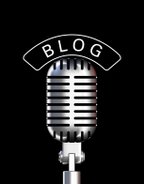





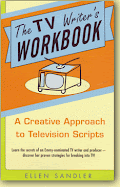



.png)


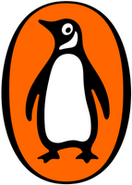
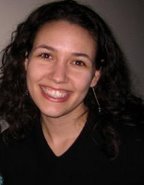
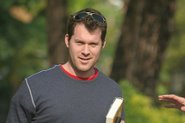

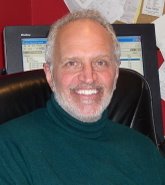
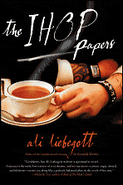
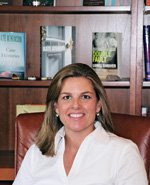
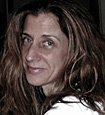
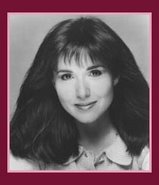
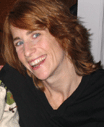


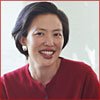


1 comment:
What a fascinating interview! Thanks. Even though I'm lucky enough to be Sue's friend, I always learn something new when I read I read her answers. And this is perfect:
"I strongly believe that reading good books is more than half of what makes you a good writer. It trains your ear. It opens your mind to the possibilities of words and adventures. And other than that, like any job, you just work at it."
Can't wait for that book to come out!
Ellen
Post a Comment